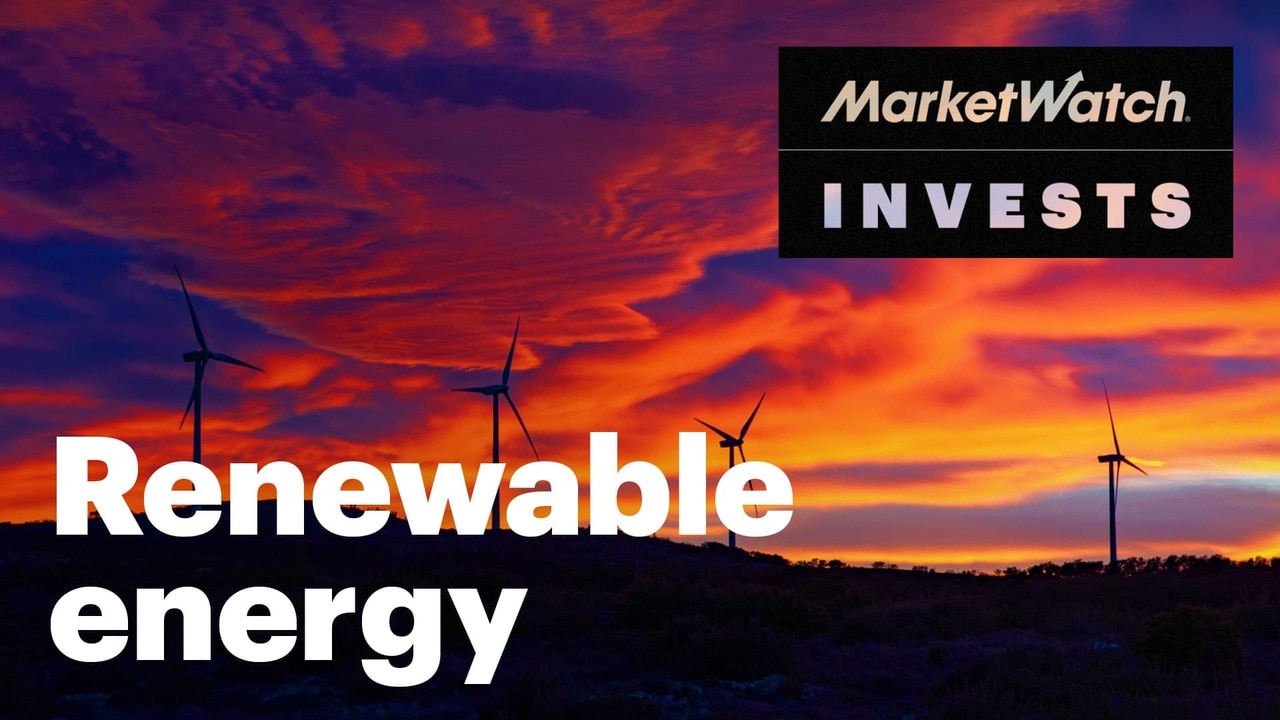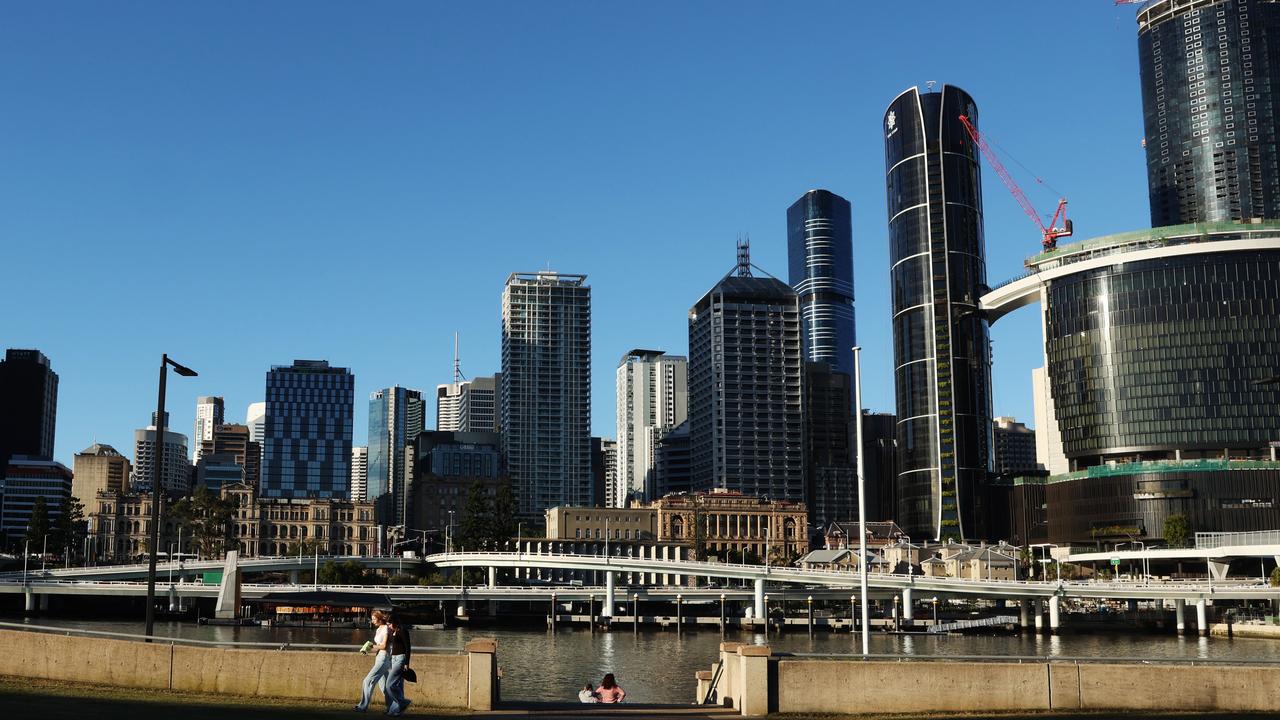Keep green dream alive: Madeleine King urges US to retain Biden’s Inflation Reduction Act
Donald Trump has threatened to wind back green subsidies in a move that could spell more trouble for critical minerals producers grappling with weak prices.
Business
Don't miss out on the headlines from Business. Followed categories will be added to My News.
Federal Resources Minister Madeleine King has urged US president-elect Donald Trump to keep Joe Biden’s $US369bn ($556bn) Inflation Reduction Act as Australia looks to turbocharge its critical minerals industry to meet green energy goals.
The message came as Rio Tinto urged Mr Trump to tackle long mine permitting delays in the US as the company looks for a breakthrough presidential ruling on a high-grade copper project in Arizona.
Asked if he had a message for the new Trump administration on the stalled Resolution copper project, Rio chief commercial officer Bold Baatar said: “Get on with permitting.”
Mr Trump has threatened to wind back the IRA in a move could spell more trouble for lithium, nickel, rare earths and other critical minerals producers grappling with weak commodity prices.
Ms King said the IRA was a job-creating policy for the US and aligned with goals to boost onshore manufacturing while reducing reliance on Chinese supply chains.
“It’s jobs for Australians. It’s also jobs for Americans,” she told The Australian. “It’ll be up to president Trump and his team as to what they do with the IRA, but it is a job-creating piece of policy and legislation over there, just like our Future Made in Australia legislation aims to create jobs over here.”
She said the government would work with the Trump administration and remained confident about US demand for critical minerals for the energy transition and in the electronics and defence industries.
“They’re going to still need critical minerals and rare earths, and we still want to be part of that story of the development of industries in the US,” she said.
The Trump victory wiped billions of dollars off ASX-listed gold stocks, with Northern Star, Evolution and Perseusall down more than 6 per cent.
Ms King also warned there would be no winners from a trade war between the US and China, amid concerns about the fallout for the iron ore industry and the broader Australian economy.

She said Australia would “work hard to have open communications” with the Trump administration on its plans, trying to avoid any trade disruption.
“Australia’s been on the rough end of that stick in the past with the trade disruptions out of China, so we don’t want to see that again,” she said.
“As a trading nation that has always benefited from foreign investment and trade, we need to make it a priority to make sure it doesn’t end up there (in a trade war).
“Economies the size of the US and China have different options available to them in the global network of trade that Australia does not have open to it.”
The $US369bn ($557.5bn) IRA has been key plank in US efforts to develop Western supply chains and reduce China’s dominance in downstream processing.
Mr Trump has been a critic of the vast program of subsidies, production credits and tax sweeteners passed into law by the Biden administration in 2022 to spur US-made renewables, transport and energy development.
“It actually sets us back, as opposed to moves us forward. And (I will) rescind all unspent funds under the misnamed IRA,” he said during the election campaign.
Evolution Mining executive chairman Jake Klein said Mr Trump’s clear-cut victory had been a factor in a softening gold price.
“Trump’s victory was more decisive than the polls predicted, so fortunately the much-feared acrimony and challenge to the election result has not occurred,” he said. “Therefore, the initial market reaction is a reduction in risk and an associated sell-off of gold.”
Mr Klein noted copper had also traded down in anticipation of a US-China trade war.
“My sense is that these are short-term reactions and the outlook remains positive for gold and other commodities,” he said.
“The one thing everyone knows about Trump is that he is unpredictable, so investors will need to be patient as they get more clarity over the next few months ahead of his inauguration as to what policies he really intends to implement and what was populist, electioneering salesmanship.”

Fortescue boss Andrew Forrest on Wednesday rejected claims from West Australian Premier Roger Cook that the iron ore industry could suffer as the US looked to instigate a trade war with China through new tariffs.
Meanwhile, the Resolution high-grade copper project in Arizona, a joint venture between Rio and BHP, has long faced opposition from Native American groups and is mired in legal action.
Rio hopes for a permitting breakthrough under the new Trump regime after 12 years of consultation with the Native American groups and other stakeholders, and several changes to mine plans.
Mr Baatar, until recently Rio’s copper boss, told a Financial Times commodity summit in Singapore that it was taking longer to get mine permits in the US than anywhere in the world apart from Zambia.
“The US needs to provide its own security of supply for its industrial base,” he said in reference to a heavy reliance on copper imports and the importance of the Resolution project to domestic supply.
A Trump presidency could hit Australia’s iron ore prices, creating pressures on state and federal budgets, businessman Maurice Newman warned.
Newman, a former chairman of the ASX and the ABC and currently an adviser to the Marsh group of companies, also warned that Trump’s election could see a big change in US policy on climate change which could have important implications for Australia.
“China is likely to suffer economically under a Trump presidency at a time when its economy is already facing serious structural imbalances,” he told The Australian. “This will seriously impact Australia’s iron ore and coal exports, not to mention state and federal budgets.”
He said that Trump’s election would see a big difference in the approach of the US and Australia on climate change policies.
“Until now Australian and US public policies have largely been aligned,” he said. “With President Trump in the White House, they will now diverge.
“The US will likely withdraw from Paris (the commitment to net zero by 2050) and pursue energy self sufficiency.
“Australia’s ideological obsession with climate change and costly, unreliable renewable energy will no longer be shared.”
Additional reporting: Glenda Korporaal
More Coverage
Originally published as Keep green dream alive: Madeleine King urges US to retain Biden’s Inflation Reduction Act





